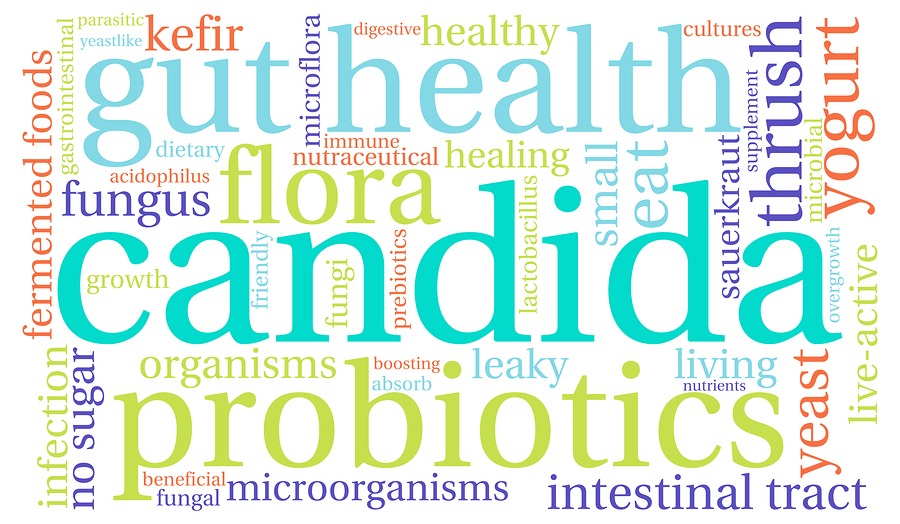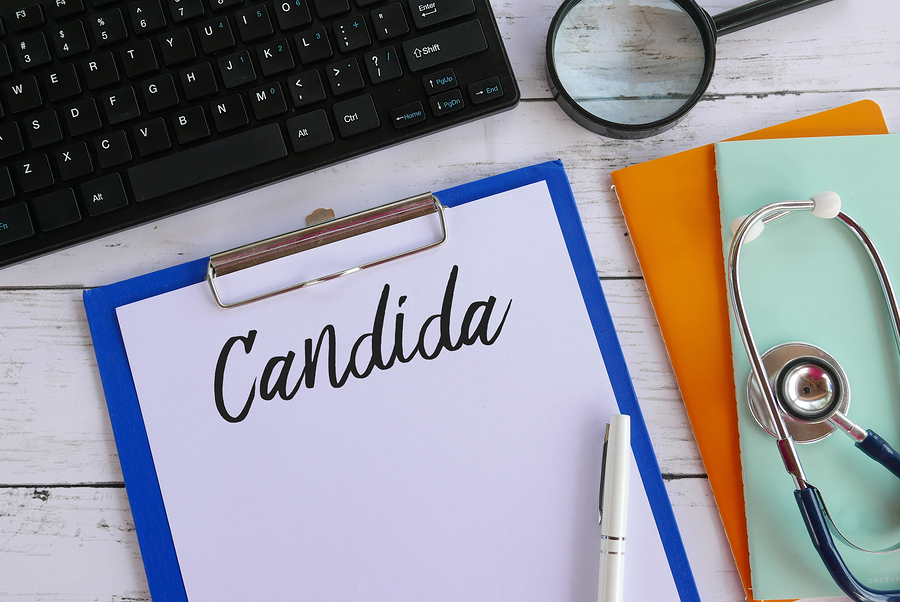Could you be suffering with candida overgrowth?
Candida is the most common form of fungal infection but if left untreated can cause serious health complications.
Occurring naturally in the gut to aid digestion and absorb nutrients, candida is a type of yeast or fungus which is controlled by the ‘good’ bacteria that exist there. Unfortunately if the balance of good and bad bacteria are upset due to illness, stress, diet or certain medication then candida levels can overgrow causing an infection called candidiasis.
Candidiasis can cause a range of symptoms such as fatigue, low mood, allergies, digestive problems, yeast or fungal infections and brain fog.
Fortunately, candidiasis is easily treatable, however, if left untreated infection can spread, entering the bloodstream and causing serious complications. It is therefore important to get yourself checked out with your medical practitioner if you suspect you have candida overgrowth.
Other symptoms common with candida overgrowth
These include:
- Inflammation of the oesophagus or gullet taking the form of a persistent sore throat or burning sensation when breathing
- Swollen lymph glands – these are a result of inflammation or infection in the body
Your doctor can also test for candida antibodies with a blood test or a stool test which may indicate the presence of candida in the intestines or colon.
Treatment available
The way to treat candida is to restore the friendly bacteria, stop the yeast overgrowth and allow your gut to get its natural balance back, so effectively stopping candida from entering the bloodstream.
Switching to a low carbohydrate diet is the first step. Eliminating sugar from your diet in the form of sweets, cake, alcohol and fizzy drinks and reducing the more complex carbohydrates such as bread, pasta, potatoes, grains, beans and fruit will help to prevent the candida from growing and eventually cause it to die. It is also a good idea to eliminate fermented foods from your diet too.
Read more on how to eliminate sugar from your diet here
Changing your diet can be effective but may take anything from 3 to 6 months before the candida is fully controlled. So your medical practitioner may recommend taking anti-fungal medication alongside your diet to speed up the process. Some common anti-fungal medications are Diflucan or Nyastatin. You can also take caprylic acid which works by making holes in the yeast cell wall so causing the yeast to die. These medications will not harm the good bacteria in your gut.

It is also recommended to restore the healthy bacteria by taking a probiotic on a regular basis. 25 to 100 billion units should be sufficient to reduce candida levels.
It is safe to introduce carbohydrates back into your diet once your gut’s natural balance has been restored.
A dietician or nutritionist will be able to give advice on reviewing your diet and you can be referred by your GP but in the meantime take a look at our article on how to keep your gut healthy and learn about which exercises are best to aid digestion
Disclaimer
All content on Silversurfers.com is provided for general information only, and should not be treated at all as a substitute for the medical advice of your own doctor or any other health care professional. Silversurfers will not be responsible or liable for any diagnosis made by a user based on the content on www.silversurfers.com and we are also not liable for the content of any external websites or links from or to Silversurfers to any other websites. Please always consult your own doctor if you’re in any way concerned about any aspect of your health
Melina - Assistant Editor
Latest posts by Melina - Assistant Editor (see all)
- By yourself at Christmas this year? Tips on how to manage alone - December 16, 2024
- The Silversurfers, just for fun, Christmas Quiz! - December 14, 2024
- 10 potential hazards for pets at Christmas - December 10, 2024
- Christmas Spiced Blueberry Panettones - December 1, 2024
- Three must have toys of the late 60’s - November 24, 2024




















